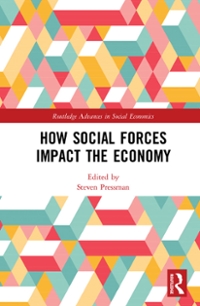Question
John has utility function U = C0.4H0.4for good C and housing H (housing measured in square feet). John's preferences are such that he always prefers
John has utility function U = C0.4H0.4for good C and housing H (housing measured in square feet). John's preferences are such that he always prefers more housing H (i.e., the larger the home or apartment in square-feet, H, the better); other than the size of the housing, all homes are identical quality, etc. (only differ in size).
John has income Y = $6,000.Market prices are PC= $1 per unit and PH= $3 per unit (square foot). Marginal utilities for C and H are:
MUC= 0.4C^-0.6H^0.4and MUH= 0.4C^0.4H^-0.6
a.Finally, suppose instead of the 600 units of housing that the government program gives John direct cash equivalent to the cost of the 600 units of H.How does this change John's consumption of H and his well-being (utility)?Given this information, can you determine which of the programs (free housing of 600 units or the cash value) John prefers?
Step by Step Solution
There are 3 Steps involved in it
Step: 1

Get Instant Access to Expert-Tailored Solutions
See step-by-step solutions with expert insights and AI powered tools for academic success
Step: 2

Step: 3

Ace Your Homework with AI
Get the answers you need in no time with our AI-driven, step-by-step assistance
Get Started


